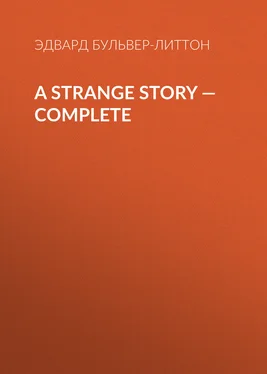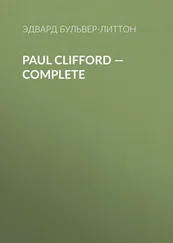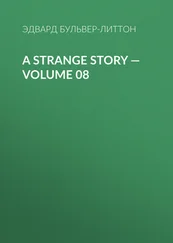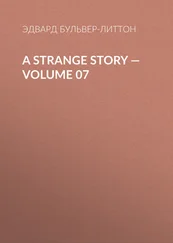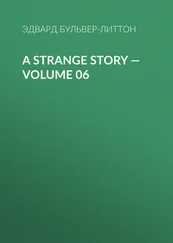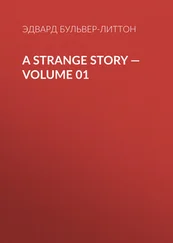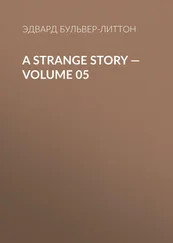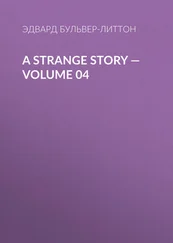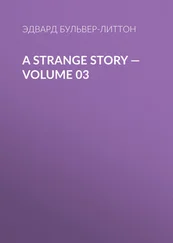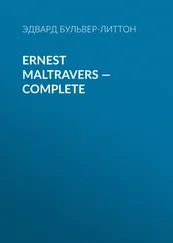Эдвард Бульвер-Литтон - A Strange Story — Complete
Здесь есть возможность читать онлайн «Эдвард Бульвер-Литтон - A Strange Story — Complete» — ознакомительный отрывок электронной книги совершенно бесплатно, а после прочтения отрывка купить полную версию. В некоторых случаях можно слушать аудио, скачать через торрент в формате fb2 и присутствует краткое содержание. Жанр: foreign_prose, literature_19, Европейская старинная литература, foreign_antique, на английском языке. Описание произведения, (предисловие) а так же отзывы посетителей доступны на портале библиотеки ЛибКат.
- Название:A Strange Story — Complete
- Автор:
- Жанр:
- Год:неизвестен
- ISBN:нет данных
- Рейтинг книги:3 / 5. Голосов: 1
-
Избранное:Добавить в избранное
- Отзывы:
-
Ваша оценка:
- 60
- 1
- 2
- 3
- 4
- 5
A Strange Story — Complete: краткое содержание, описание и аннотация
Предлагаем к чтению аннотацию, описание, краткое содержание или предисловие (зависит от того, что написал сам автор книги «A Strange Story — Complete»). Если вы не нашли необходимую информацию о книге — напишите в комментариях, мы постараемся отыскать её.
A Strange Story — Complete — читать онлайн ознакомительный отрывок
Ниже представлен текст книги, разбитый по страницам. Система сохранения места последней прочитанной страницы, позволяет с удобством читать онлайн бесплатно книгу «A Strange Story — Complete», без необходимости каждый раз заново искать на чём Вы остановились. Поставьте закладку, и сможете в любой момент перейти на страницу, на которой закончили чтение.
Интервал:
Закладка:
“God bless you, sir! If ever I can serve you—” His tongue faltered, he could say no more.
Serve me, Allen Fenwick—that poor policeman! Me, whom a king could not serve! What did I ask from earth but Fame and Lilian’s heart? Thrones and bread man wins from the aid of others; fame and woman’s heart he can only gain through himself.
So I strode gayly up the hill, through the iron gates, into the fairy ground, and stood before Lilian’s home.
The man-servant, on opening the door, seemed somewhat confused, and said hastily before I spoke,—
“Not at home, sir; a note for you.”
I turned the note mechanically in my hand; I felt stunned.
“Not at home! Miss Ashleigh cannot be out. How is she?”
“Better, sir, thank you.”
I still could not open the note; my eyes turned wistfully towards the windows of the house, and there—at the drawing-room window—I encountered the scowl of Mr. Vigors. I coloured with resentment, divined that I was dismissed, and walked away with a proud crest and a firm step.
When I was out of the gates, in the blind lane, I opened the note. It began formally. “Mrs. Ashleigh presents her compliments,” and went on to thank me, civilly enough, for my attendance the night before, would not give me the trouble to repeat my visit, and inclosed a fee, double the amount of the fee prescribed by custom. I flung the money, as an asp that had stung me, over the high wall, and tore the note into shreds. Having thus idly vented my rage, a dull gnawing sorrow came heavily down upon all other emotions, stifling and replacing them. At the mouth of the lane I halted. I shrank from the thought of the crowded streets beyond; I shrank yet more from the routine of duties, which stretched before me in the desert into which daily life was so suddenly smitten. I sat down by the roadside, shading my dejected face with a nervous hand. I looked up as the sound of steps reached my ear, and saw Dr. Jones coming briskly along the lane, evidently from Abbots’ House. He must have been there at the very time I had called. I was not only dismissed but supplanted. I rose before he reached the spot on which I had seated myself, and went my way into the town, went through my allotted round of professional visits; but my attentions were not so tenderly devoted, my skill so genially quickened by the glow of benevolence, as my poorer patients had found them in the morning. I have said how the physician should enter the sick-room. “A Calm Intelligence!” But if you strike a blow on the heart, the intellect suffers. Little worth, I suspect, was my “calm intelligence” that day. Bichat, in his famous book upon Life and Death, divides life into two classes,—animal and organic. Man’s intellect, with the brain for its centre, belongs to life animal; his passions to life organic, centred in the heart, in the viscera. Alas! if the noblest passions through which alone we lift ourselves into the moral realm of the sublime and beautiful really have their centre in the life which the very vegetable, that lives organically, shares with us! And, alas! if it be that life which we share with the vegetable, that can cloud, obstruct, suspend, annul that life centred in the brain, which we share with every being howsoever angelic, in every star howsoever remote, on whom the Creator bestows the faculty of thought!
CHAPTER XII
But suddenly I remembered Mrs. Poyntz. I ought to call on her. So I closed my round of visits at her door. The day was then far advanced, and the servant politely informed me that Mrs. Poyntz was at dinner. I could only leave my card, with a message that I would pay my respects to her the next day. That evening I received from her this note:—
Dear Dr. Fenwick,—I regret much that I cannot have the pleasure of seeing you to-morrow. Poyntz and I are going to visit his brother, at the other end of the county, and we start early. We shall be away some days. Sorry to hear from Mrs. Ashleigh that she has been persuaded by Mr. Vigors to consult Dr. Jones about Lilian. Vigors and Jones both frighten the poor mother, and insist upon consumptive tendencies. Unluckily, you seem to have said there was little the matter. Some doctors train their practice as some preachers fill their churches,—by adroit use of the appeals to terror. You do not want patients, Dr. Jones does. And, after all, better perhaps as it is.
Yours, etc.
M. Poyntz.To my more selfish grief, anxiety for Lilian was now added. I had seen many more patients die from being mistreated for consumption than from consumption itself. And Dr. Jones was a mercenary, cunning, needy man, with much crafty knowledge of human foibles, but very little skill in the treatment of human maladies. My fears were soon confirmed. A few days after I heard from Miss Brabazon that Miss Ashleigh was seriously ill, kept her room. Mrs. Ashleigh made this excuse for not immediately returning the visits which the Hill had showered upon her. Miss Brabazon had seen Dr. Jones, who had shaken his head, said it was a serious case; but that time and care (his time and his care!) might effect wonders.
How stealthily at the dead of the night I would climb the Hill and look towards the windows of the old sombre house,—one window, in which a light burned dim and mournful, the light of a sick-room,—of hers!
At length Mrs. Poyntz came back, and I entered her house, having fully resolved beforehand on the line of policy to be adopted towards the potentate whom I hoped to secure as an ally. It was clear that neither disguise nor half-confidence would baffle the penetration of so keen an intellect, nor propitiate the good will of so imperious and resolute a temper. Perfect frankness here was the wisest prudence; and after all, it was most agreeable to my own nature, and most worthy of my own honour.
Luckily, I found Mrs. Poyntz alone, and taking in both mine the hand she somewhat coldly extended to me, I said, with the earnestness of suppressed emotion,—
“You observed when I last saw you, that I had not yet asked you to be my friend. I ask it now. Listen to me with all the indulgence you can vouchsafe, and let me at least profit by your counsel if you refuse to give me your aid.”
Rapidly, briefly, I went on to say how I had first seen Lilian, and how sudden, how strange to myself, had been the impression which that first sight of her had produced.
“You remarked the change that had come over me,” said I; “you divined the cause before I divined it myself,—divined it as I sat there beside you, thinking that through you I might see, in the freedom of social intercourse, the face that was then haunting me. You know what has since passed. Miss Ashleigh is ill; her case is, I am convinced, wholly misunderstood. All other feelings are merged in one sense of anxiety,—of alarm. But it has become due to me, due to all, to incur the risk of your ridicule even more than of your reproof, by stating to you thus candidly, plainly, bluntly, the sentiment which renders alarm so poignant, and which, if scarcely admissible to the romance of some wild dreamy boy, may seem an unpardonable folly in a man of my years and my sober calling,—due to me, to you, to Mrs. Ashleigh, because still the dearest thing in life to me is honour. And if you, who know Mrs. Ashleigh so intimately, who must be more or less aware of her plans or wishes for her daughter’s future,—if you believe that those plans or wishes lead to a lot far more ambitious than an alliance with me could offer to Miss Ashleigh, then aid Mr. Vigors in excluding me from the house; aid me in suppressing a presumptuous, visionary passion. I cannot enter that house without love and hope at my heart; and the threshold of that house I must not cross if such love and such hope would be a sin and a treachery in the eyes of its owner. I might restore Miss Ashleigh to health; her gratitude might—I cannot continue. This danger must not be to me nor to her, if her mother has views far above such a son-in-law. And I am the more bound to consider all this while it is yet time, because I heard you state that Miss Ashleigh had a fortune, was what would be here termed an heiress. And the full consciousness that whatever fame one in my profession may live to acquire, does not open those vistas of social power and grandeur which are opened by professions to my eyes less noble in themselves,—that full consciousness, I say, was forced upon me by certain words of your own. For the rest, you know my descent is sufficiently recognized as that amidst well-born gentry to have rendered me no mesalliance to families the most proud of their ancestry, if I had kept my hereditary estate and avoided the career that makes me useful to man. But I acknowledge that on entering a profession such as mine—entering any profession except that of arms or the senate—all leave their pedigree at its door, an erased or dead letter. All must come as equals, high-born or low-born, into that arena in which men ask aid from a man as he makes himself; to them his dead forefathers are idle dust. Therefore, to the advantage of birth I cease to have a claim. I am but a provincial physician, whose station would be the same had he been a cobbler’s son. But gold retains its grand privilege in all ranks. He who has gold is removed from the suspicion that attaches to the greedy fortune-hunter. My private fortune, swelled by my savings, is sufficient to secure to any one I married a larger settlement than many a wealthy squire can make. I need no fortune with a wife; if she have one, it would be settled on herself. Pardon these vulgar details. Now, have I made myself understood?”
Читать дальшеИнтервал:
Закладка:
Похожие книги на «A Strange Story — Complete»
Представляем Вашему вниманию похожие книги на «A Strange Story — Complete» списком для выбора. Мы отобрали схожую по названию и смыслу литературу в надежде предоставить читателям больше вариантов отыскать новые, интересные, ещё непрочитанные произведения.
Обсуждение, отзывы о книге «A Strange Story — Complete» и просто собственные мнения читателей. Оставьте ваши комментарии, напишите, что Вы думаете о произведении, его смысле или главных героях. Укажите что конкретно понравилось, а что нет, и почему Вы так считаете.
